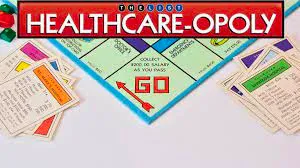Few people, if any, would agree to purchase a smartphone without first knowing the price; however, in the U.S. very few health care providers provide up-front pricing for their services. How could this problem be fixed and how would price transparency improve our healthcare system and how would consumers of health care services benefit.
The United States healthcare system has been broken for the last decade, overcharging patients extreme amounts for even basic services. The United States is known worldwide for its expensive healthcare, yet with the additional cost, the quality of our healthcare system has not improved. A study conducted by The Moran Company found that medications can be marked up to 700%. Meaning that a medication that cost $150 for the hospital, would in turn cost the patient $1,050. And while a hospital just as a business will need to make a profit to support its facilities and employees, the average markup of most industries is 50% to 100%. The markup of the medical industry is more than most other industries, and since many medications are life-saving patients have no choice but the purchase the medication. Luckily, the solution of hospitals being transparent and providing their markup prices can great benefit U.S. patients.
Over the years, patients have become increasingly aware that after a hospital stay and they receive their bill if you ask for an itemized bill hospitals must send you a breakdown of all the charges on the bill. Most patients after receiving this bill notice a decrease from the original price, this is because hospitals are allowed to charge many unnecessary fees, however, when an itemized bill is given they remove it due to complaints and complications from patients. So when it comes to a hospital stay or services hospitals are able to provide accurate prices, yet choose not to since they are able to add in additional markups. If hospitals were required to list all their prices then patients would be able to know all possible charges and be able to despite any unnecessary prices. Additionally, the same can be done for the cost of medications given to patients. Patients often have the ability (unknowingly) to choose which brands of medications they would like to take, similar to how people may choose to take Tylenol or acetaminophen, the medications are the same, yet one is much cheaper. If patients are given the knowledge of how much their medication costs, and the cost of similar medications they can make their own decisions about which medications they choose and which price point they want.
